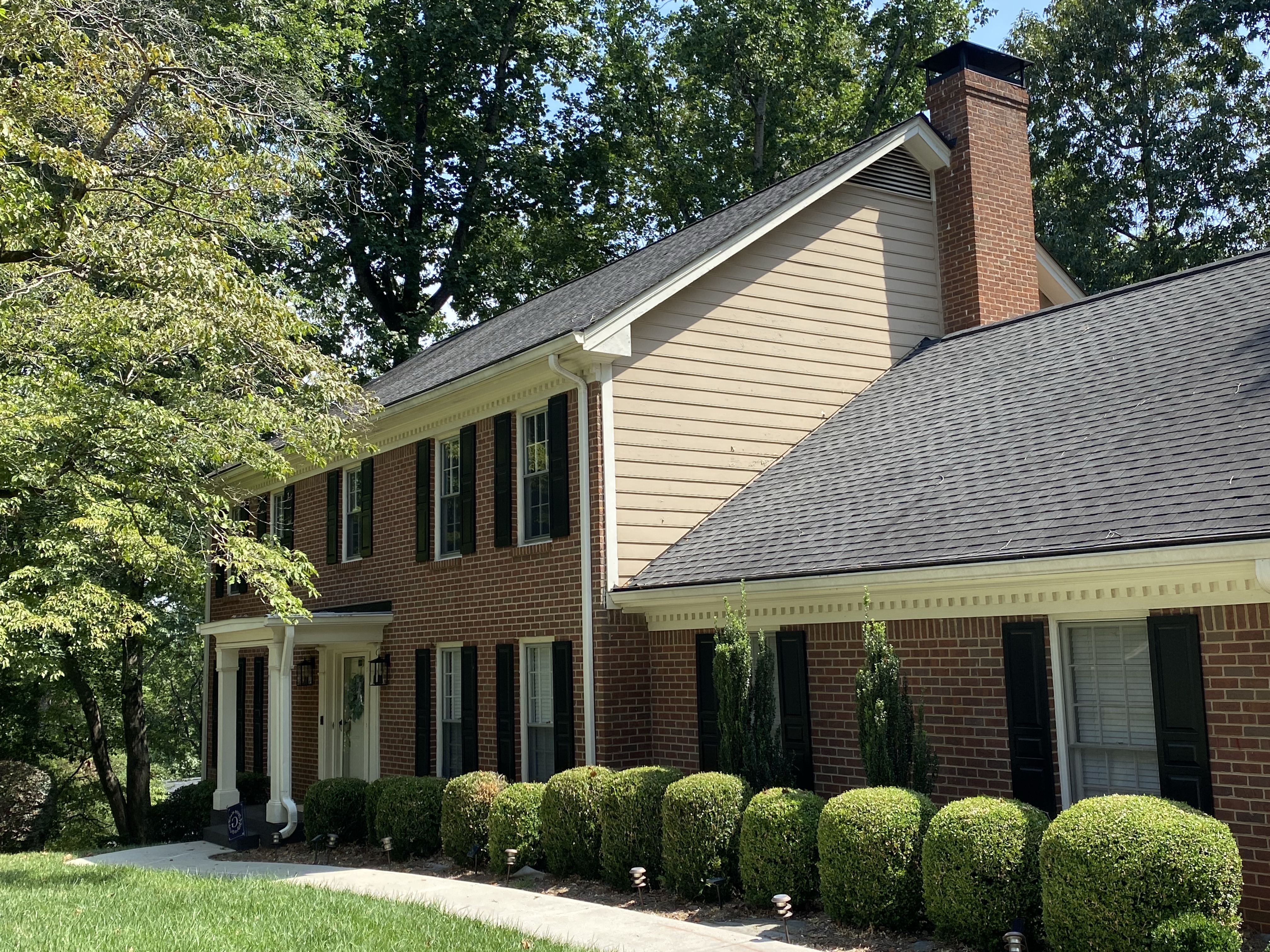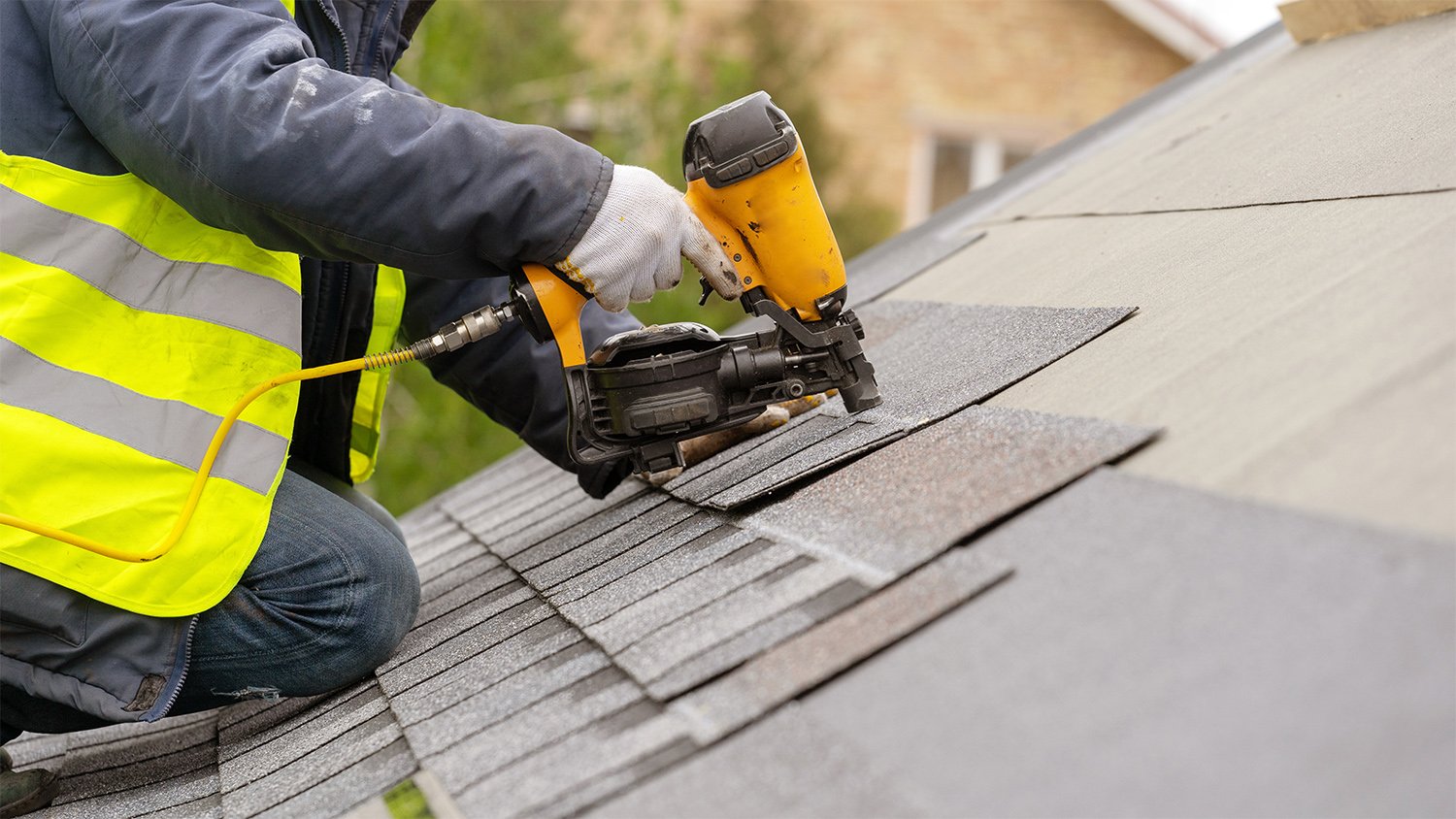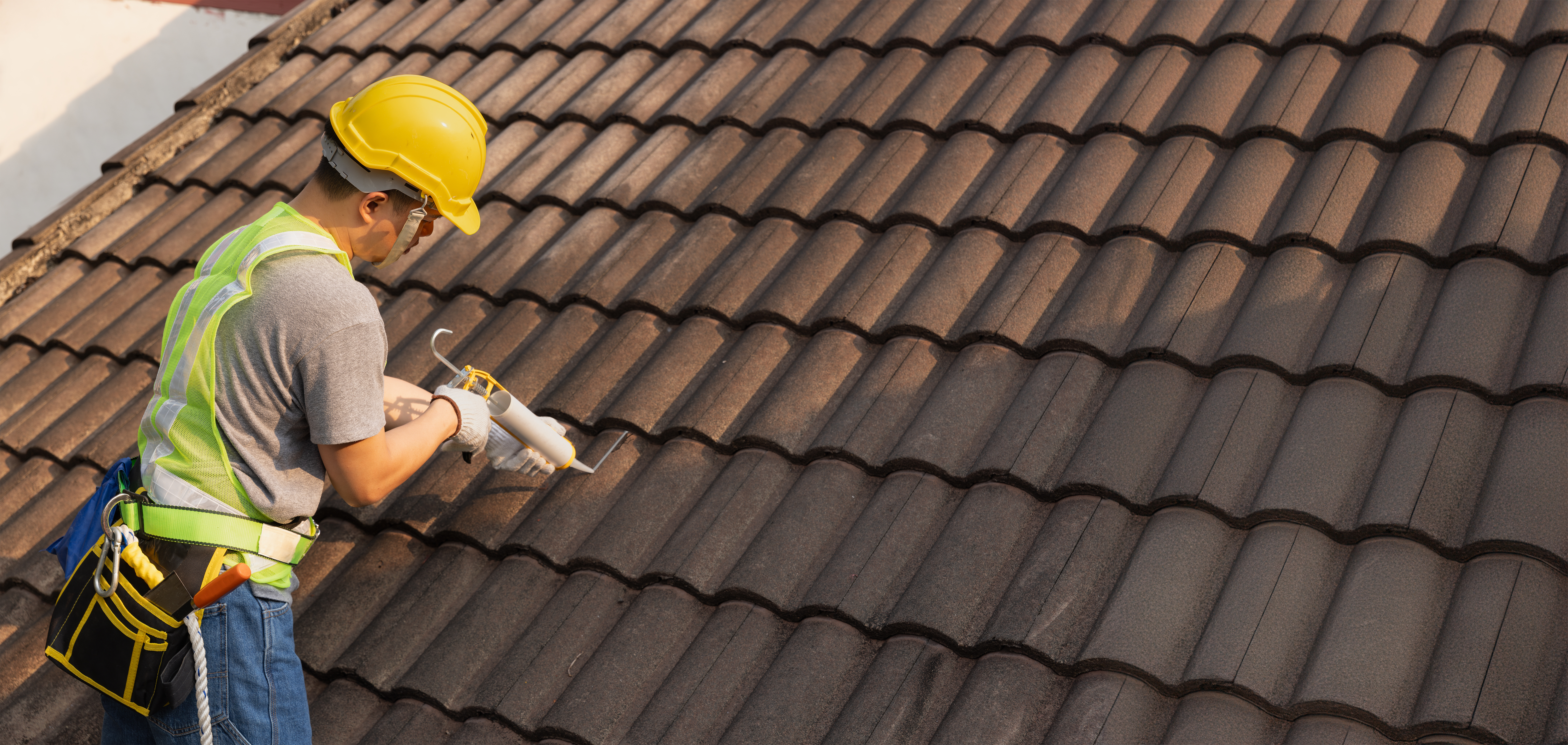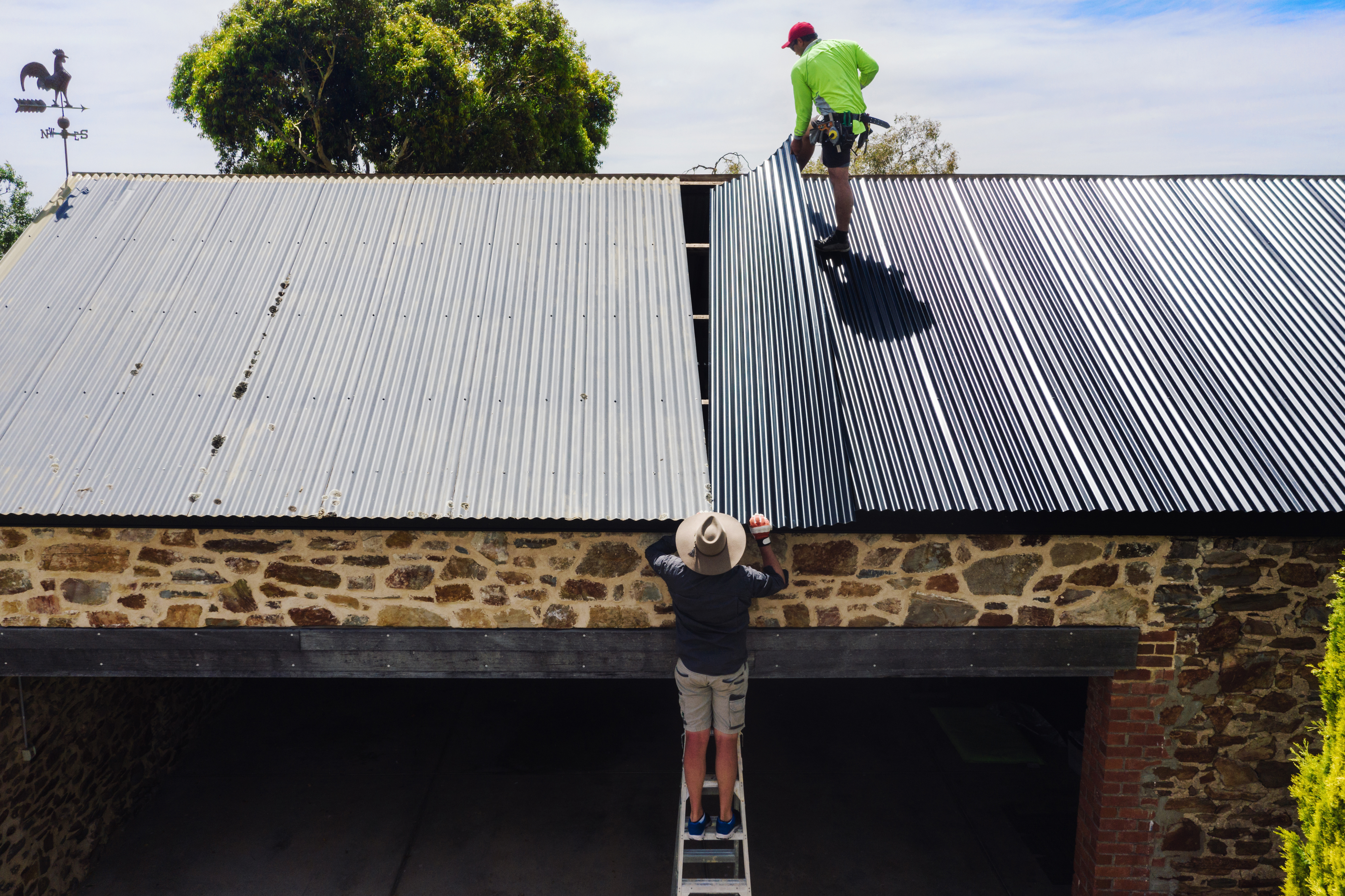
A new roof boosts curb appeal and home value and sets you up for decades of home protection. Learn about roof replacement costs in Atlanta to set your budget.
Negotiate payment terms for your next roofing project with confidence


If a roofer wants the total payment upfront, it is usually a scam.
Paying a percentage of the roofing cost as an upfront deposit is normal.
Only pay roofers with traceable payments, such as checks or credit cards.
A new roof can cost as much as $10,000 or more.
You have done your research, read reviews, and finally found the perfect roofer for your project, but now you are wondering when and how to pay for a new roof. Do you pay upfront, or are you supposed to pay in installments? Avoid any awkward negotiations with these tips.
If a roofer is asking you to pay for the project in full before the work begins, you should probably reach out to other roofers near you. Typically, reputable roofers will not ask for money before starting the project. You could find yourself out of a lot of money if the company drags its feet on completing the work.
Never pay for the project upfront.
Be especially wary of roofing contractors who demand a full payment in cash before starting the work.
Paying a deposit is standard.
Have a contract in place to protect both yourself and the roofing company.
It is not a scam for a roofing company to ask for a deposit upfront; however, it could be a scam if they ask for full payment. Roofing companies must purchase the parts of the roof to begin your job, so a deposit helps them with this step. Plus, it reassures them that you will pay the bill after they complete the roof.
The amount of deposit a roofing company asks for could also be a sign of a scam. Typically, any deposit over 50% is a scam and it is typically only larger jobs that require large deposits because of the cost of the materials to start the work.
In addition, how a roofing company asks for payment could be a sign of a scam. A large upfront deposit or insistence that you only pay in cash should be red flags. Reputable roofing companies accept checks and credit cards as a form of payment.
Knowing when you should pay a roofer is important. Typically, a roofing contractor will ask for a deposit, which can range from 10% to 30% of the project total. Larger roof projects often require a larger deposit, as do certain types of roofing materials. You could be asked to pay for the materials as a form of deposit. You will pay the deposit before the project begins and, once the work is complete, you will pay for the rest of the project.
You and your roofer should outline payment details and project timelines in a contract for mutual protection, so you are not left with a shoddy roof and your roofer is not left completing work without payment.
Only pay the roofing company after signing a contract. The contract should include all the details about the project, including start dates, materials required, and any guarantees provided. It should also clearly state the payment terms. Do not be afraid to negotiate the terms of the contract, including the amount of the deposit, to ensure you are in agreement.
Now that your roofer has completed the job, it’s time to pay them. There are a couple of reliable ways to pay a roofer—check or credit card. Never pay in cash.
Paying a roofing contractor in cash, even if it is your idea, is risky. You should only pay by check or credit card so you can cancel the payment should you discover it is a scam. There is little to no guarantee that you would get cash back if that is how they require payment.
Even if a roofing company offers a “cash discount,” avoid taking it. This might be their way of scamming you. They get you to pay cash upfront and then either do not complete the job, put you on hold for many months, or do shoddy work.
While it is not common practice for roofing jobs, paying in installments is not unheard of to cover the hefty roof replacement cost. You will need to discuss this option with your roofer, as some companies or contractors may not accept payment in installments. When you decide on a timeline for payments, you will need to include this in your contract to hold both parties accountable.
Many roofing companies take credit cards, though not all will. If you’re set on paying by credit card, ask potential roofing companies if they accept credit cards before signing a contract. A reliable alternative to paying by credit card is writing a check. Like a credit card transaction, you can usually void or cancel a check if you find out you’ve been scammed.
If you want to protect your investment in a new roof or roof work, you might consider purchasing separate payment insurance. This step can help recoup lost costs if the roofer abandons the project midway through after collecting your deposit or leaves you with a faulty roof.
A roofer will typically charge 10% to 30% of a project upfront. For large projects, like upgrading an entire roof, you may need to pay up to one-third of the project’s total cost in the beginning. Trustworthy companies will not ask you for more than that, and you should make these payments through a debit or credit card or a check, as these forms of payments are traceable, unlike cash.

Installing a roof is a dangerous job, so it is best to hire a roofer—especially for large jobs—rather than try to do the work yourself. There are several components to the cost of a roofer, from the size of the project to the materials to the cost of labor.
The average roofing project costs about $1,000.
Small repairs may cost $150 to $500.
Large projects like roof replacement cost more than $10,000.
Roofing labor costs about $50 to $75 per hour.
The type of roofing material can impact the cost as well. For example, fixing a composite roof may cost around $500, while repairs for slate or metal roofs can cost $1,500 to $2,000.
While there are some horror stories of roofers abandoning projects or doing shoddy work after getting their money, there are far more trustworthy roofers out there. You just have to know how to find them.
Word of mouth: Talk with neighbors, friends, and family members to get feedback on any roofing contractors they have worked with and liked in the past.
Online reviews: Search online to see what other people in your area are saying about their experience with local roofing companies.
References: Once you narrow your search to at least three promising roofers, ask each one for contacts. You will ask their references several questions, such as how they would describe communicating with the roofing contractor throughout the project, their satisfaction with the project, and how the timeline progressed.
Now that you know the expectations in terms of deposits, payment plans, and final payments for roofers, you can start working on a project contract with your selected roofing company. Be prepared to pay a 10% to 30% deposit, then pay off the rest of the work upon completion. Your new and improved roof awaits.
I cannot say enough to properly express my satisfaction in working with Golden Master. I have a property that I cannot easily access. They went to the place, made an assessment, and performed the work perfectly. The fees were competitive. Later, the house had a different problem. They came...
Allan gave a proper detailed estimate with all items explained thoroughly. The team that installed the new roof were as professional as Allan told me they would be. Well done to Allan and the THR team.
I used Top Roof to repair our leaky shingle roof and had a great experience with them. Top Roof and his team were very nice to deal with, performed quality work in a timely fashion, and at a very competitive price. I appreciate as a customer. I would call again for any roofing needs and...
Did some repairs to the roof. The roof had some water damage. He did a great job. The price was reasonable. He was easy to work with. He does a really good job. If I have any other work, I call him. They clean up after themselves really well.
I couldn't have been more pleased with the work performed by ACR Group. Jim, his brother Michael and crew were fantastic! They did a great job. The debris from the repairs and cleaning of the gutters was nowhere to be seen. Every day the site was as clean as when they arrived and the final...
I own a 2011 Dodge Grand Caravan that I use for my business. Dropped my car at mr transmission on July 6, 2015, after he diagnosed my car, he Initially quoted me $598 flat for the labor and he said I only need snap ring and wave plates for an additional $75 for parts, he called me on July 7,...
The old awning on our roof deck was disintegrating. We called Fitzsimmons on the basis of good reviews on Angie's List. They came out promptly and carried out a detailed assessment and gave clear and helpful information and guidance about our options. When we chose a color combination they...
Sang bid to paint our two story house and detached two car garage. We knew the house needed a lot of expensive prep work but our budget could not cover the $10k others were bidding to do the job. We were also worried about the new roof and newly worked over chimney getting over-spray...
From average costs to expert advice, get all the answers you need to get your job done.

A new roof boosts curb appeal and home value and sets you up for decades of home protection. Learn about roof replacement costs in Atlanta to set your budget.

Atlanta’s hot, humid climate can cause various types of roof damage. Learn how much roof repair costs in Atlanta, GA, and what affects how much you’ll pay.

Metal roofs stand up better to severe weather than asphalt shingles. See how much a metal roof costs in Atlanta to see if this upgrade is within your budget.

Roof sealant helps protect your roof from the elements. Learn about different types of roof sealant and how to pick the right one for your roof.

You've likely come across single-ply roofing if you're looking for a good roofing solution for low-sloped or flat roofs. Here's everything you need to know.

If a rough storm passes through and leaves you with a hail-damaged roof, would you know what to do? Check out important hail damage protocols here.